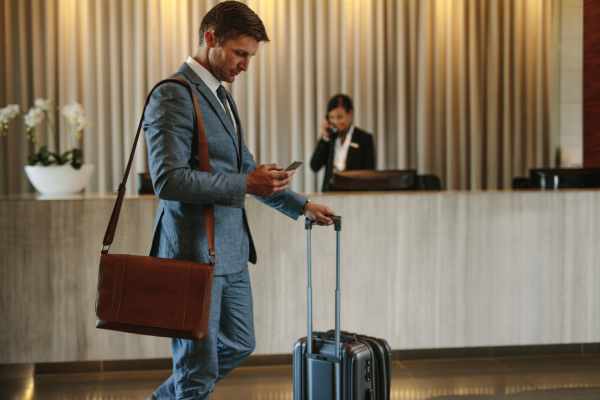Corporate travel spend by companies in the U.S. is expected to improve between 8% and 12% to reach or exceed pre-COVID levels by the end of this year, according to a recent Deloitte study has suggested.
Travelers are likely to take frequent trips compared to 2023, with 77% of business travelers mentioning that they took one to five trips last year, 15% took six to 10 trips and 7% said they took more than 10. This year, 20% of travelers expect to take six to 10 trips and 10% said they will take more than 10 trips.
As prices and trip frequencies increase, 73% of travel managers surveyed said they expect their companies’ travel spend to increase this year, while 58% expect it to increase in 2025 and those projecting gains anticipating an average of 14-15% every year.

GROWTH DRIVERS
Industry events have been one of the biggest drivers of business travel growth in 2023, with a quarter of travel managers expecting it to continue this year as well. Half rank conferences were among the top two growth drivers. About six in 10 travelers said they plan to travel for a conference this year.
Sales and client project work are also major drivers of travel frequency. Some 23% of frequent travelers said they traveled one per month or more in H1 2024 for client project works or client relationship building (21%).
Travel managers expected international trips’ share of spend to marginally increase in 2025 and lean towards trips beyond North America. The easing of entry requirements was the third-biggest driver of trip growth in 2024, followed by live event attendance and budget increases.
Return to office is still impacting the resurgence of corporate travel, but its influence is waning. One in five travel managers cited major return-to-office by client base and significant return-to-office by respondent’s company as the top two drivers of increased travel.
STEEP PRICES
Although escalating prices significantly drive up spend, it is acting as a deterrent and resulting in companies reducing trip volume. About 22% of travel managers said high prices have the most impact on trip volume for their companies. The impact of pricing on travel volume is 1.5 times as crucial as that of budget cuts, the study found. Half of the travel managers said their companies are considering or mandating lower-cost flights and many are adding amenity adjustments on the negotiating table.
Airlines and hotels have not been cooperative, travel managers said. Compared to last year, suppliers have been leaning slightly toward tougher negotiating stances. These cost challenges come amid increasing pressures for travel managers to deliver more in some areas, which can further escalate costs — more comfort for travelers, more sustainable trips and more flexible bookings.
In an effort to mitigate costs, 55% of travel managers cited booking compliance as the leading control measure, ahead of all other options, including encouraging cheaper flight and hotel options. But about 56% of travelers who were aware that their company has a corporate booking tool or agency said they always booked trips through these managed channels.
While frequent travelers may seem more likely to eschew compliance tools, responses indicated age is a stronger predictor of booking compliance than travel frequency. GenX and Boomers were much less likely to say they always use managed channels.
SUSTAINABILITY
For many organizations, balancing the rising demand for more travel with sustainability goals is top priority. Companies making progress toward more visibility into their environmental impact, but most still think that emissions targets will hinder travel.
More than half of the travel managers feel companies need to cut down travel by 10-20% to meet 2030 sustainability goals. Meanwhile, more travel managers said their companies have started adopting travel-related sustainability measures and encouraging and enabling employees to make greener travel choices.
Overall, companies are more prepared and active in their approach to sustainable travel in 2024. Some 46% said they have a strategy in place to assign travel emission budgets to teams and individuals, jumping from 30% in 2023.
“The stabilization of corporate travel holds both opportunities and challenges as the industry adapts to new norms and priorities. Travel buyers and suppliers should work together to navigate these shifting dynamics,” said Kate Ferrara, vice chair, Deloitte LLP and U.S. transportation, hospitality and services non-attest leader. “As companies manage pricing pressures, suppliers who lean into flexibility to help companies meet employee expectations can build loyalty and be well-positioned for the road ahead.”















